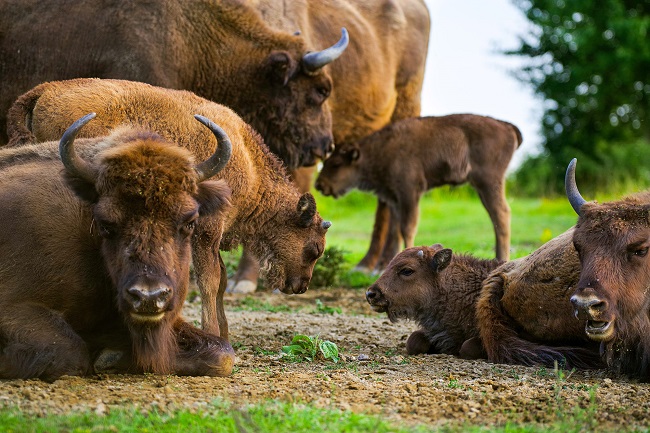As the climate changes, the risk of wildfires in the European landscape is increasing. Grazing large ungulates can be a cheap way to prevent these risks, experts pointed out in the context of this year’s wave of fires in southern and central Europe.

“Progressive climate change towards drier and warmer weather and the current overgrowth of the landscape are creating a dangerous combination. The landscape is becoming more flammable due to prolonged drought and increasing amounts of fuel in the form of dry vegetation. Grazing of large ungulates is a very effective tool for removing vegetation that enables fire to spread quickly. Be it is areas with old, dry grass or shrubs,” explains Miloslav Jirků from the Biology Centre of the Academy of Sciences of the Czech Republic.
Grazing could also prevent fires from recurring in some areas that have recently burned.
“Burnt areas quickly become overgrown with expansive grass species, whose dry covers are known to be highly flammable and are often the sites where fires spread over large areas. Large ungulates could minimise these risks because they also graze grass species that, for example, livestock usually cannot handle,” added Jirku.
Large ungulates such as bison, wild horses or back-bred aurochs can provide fire prevention, especially in national parks, nature reserves and protected landscape areas, but also in former and active military areas. Bison have long lived, for example, in Poland’s largest military area, Drawsko in Western Pomerania, which is often used by NATO armies for their exercises.
For hundreds of thousands of years, large ungulates have been the landscape’s natural protection against large-scale fires. Scientific research has shown that the number of wildfires in the countryside increased significantly in the past after humans had eradicated large herbivores from the landscape.
“It’s not surprising. For example, the US and Canada understood decades ago that the best form of fire prevention is to reduce the amount of potential fuel. When a landscaping phenomenon in the form of large herbivores is present to remove dry grass, there is fewer fires in the landscape. And if a fire does occur, it will affect significantly smaller areas. Another means of prevention, besides grazing dry grass, are also trails trodden by large ungulates that criss-cross the landscape and often stop the spread of fire,” adds Jirku.
Moreover, it is a low-cost solution. “The advantage of grazing large ungulates is that it is very cheap compared to other methods of landscape care and fire prevention and, most importantly, it is functional in the long term without the need for further investment. This is because it prevents one of the main causes of fires, excess dry herbaceous biomass in the landscape. Moreover, it increases the biodiversity of the area and supports the landscape’s ability to retain water,” added Dalibor Dostal from the conservation organisation European Wildlife.
Grazing of large ungulates is part of natural processes and can therefore take place even in more strictly protected parts of national parks and other protected areas.
Unlike livestock, large ungulates do not require treatment with veterinary products such as antiparasitics or antibiotics, the widespread use of which in livestock causes contamination of the landscape with toxic substances with a number of significant negative consequences.
Fires in the European Union destroyed 700,000 hectares of forest this year.
